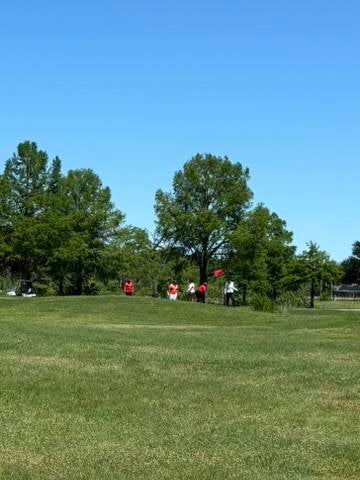
As a golfer, I’ve always known there are risks on the course — sun exposure, wild swings, sore muscles, snakes and other critters. But I never imagined Parkinson’s could be one of them. And yet, studies are now showing a potential link between exposure to herbicides and fungicides that are often used to maintain pristine golf courses and a heightened risk of developing Parkinson’s disease.
That hit me hard. Like most golfers, I’ve spent countless hours walking fairways, crouching over greens, and brushing my hands across the grass without a second thought. We think of golf as peaceful, even healing. But when that peace is chemically treated, it can come with invisible consequences.
Researchers have found that many pesticides, including paraquat and maneb, can disrupt dopamine production in the brain, one of the root causes of Parkinson’s. Even casual or infrequent exposure has been shown to increase risk, particularly for those who live near courses or play regularly. And it gets worse. Many golf courses spray frequently and quietly. Players aren’t always told when chemicals have just been applied, and those perfectly green fairways can come at a toxic cost.
So now I’m thinking differently. I’m thinking about my grandkids who I've always hoped might someday pick up my clubs. I’m thinking about the members in my league, the people who walk those greens daily, the workers who maintain the courses. If there’s a known risk, we deserve to know what we’re being exposed to and how to protect ourselves.
What You Can Do to Protect Yourself
Avoid playing on freshly treated greens.
This one’s hard because most golf courses don’t publicly post their spray schedules. But you can ask. Politely request to know when the course was last sprayed, especially before a tournament or league play. If they don’t know or won’t say, assume the worst and be proactive.
Change your clothes and shoes after every round.
This might seem like overkill, but it matters. Residue from the grass can cling to your shoes, socks, and pant legs and once you're home, that residue can make its way into your carpet, furniture, or even your bed. Keep a second pair of shoes in your trunk and change out of your golf clothes as soon as you get home. And don’t wear your golf shoes inside the house.
Wash your hands every single time.
How many times have we left the course, grabbed a snack, or touched our face without washing or sanitizing our hands? Even without visible dirt, your hands have been in contact with grass, balls, tees, and gloves that may have absorbed chemical residue. Treat it like you would after pumping gas. Wash before you eat or drink.
Advocate for organic or reduced-chemical maintenance.
Start the conversation. Many courses don’t realize players care about this issue. Ask your league, your course superintendent, or even your city if they’re open to reducing chemical use or transitioning to organic treatments. There are eco-friendly turf solutions out there, but courses won’t use them unless they know their players value safety over appearances.
Be vocal with your league and course.
Talk to other players. Share articles. Push for transparency. We don’t have to play blind. If you're part of a golf league, include chemical safety in your mission and values. Encourage others to ask questions too, not in a confrontational way, but in a "we deserve to know" way. It’s your health on the line.
Consider gear decontamination.
If you really want to take an extra step, you can spray or wipe down your clubs, bags, and even balls with a mild soap solution or disinfectant wipes after a round. Especially if they were in contact with wet or treated grass. It may seem extreme, but repeated exposure over years adds up and this is a simple, five-minute habit that might make a long-term difference.
Bottom line:
I’m not giving up the game I love. But I’m going to be smarter about how I play it. Golf is supposed to bring joy, connection, and peace of mind, not worry about long-term neurological health. If something as simple as hand washing, changing clothes, or asking the right questions can help protect me and the people I play with, I owe it to all of us to start doing it.
Let’s protect the game and ourselves. Because we’re not just playing for today, we’re playing for every tomorrow we want to have.
Add comment
Comments